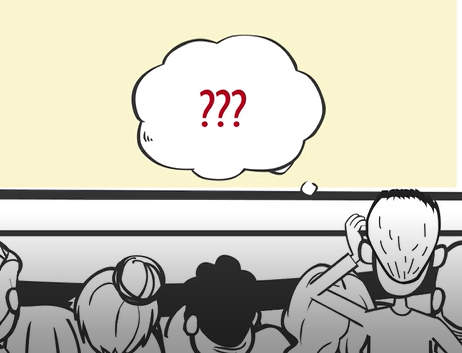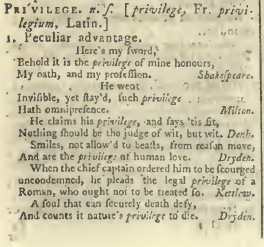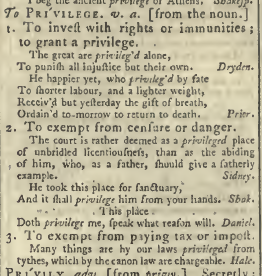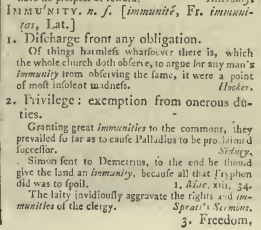The People's Rights
&
The Government's Powers

This page changed with the March 22, 2024 edit.
To move all ads to bottom of screen, shrink the window width
The prototype CleanHonestGov.Com Human Powered Vehicle is almost ready for travel-testing.
Helping establish Clean Honest Government with these united States of America.

This page changed with the March 22, 2024 edit.
Citizen are continuously faced with whether they should obey a given government law, act, or order: Or not.
Knowing how to recognize when a government act or order violates The Constitution is important. But knowing this does not make it any easier to do what is right.
The original design from 1776 was that the government's powers are supposed to work to equally protect the people's rights. To which people should be thinking The People's Rights AND The Government's Powers, as they are suppose to work together for the same result.
However, as government deteriorated, and the people lost the will to hold their government officers accountable; the phrase, The People's Rights verses The Government's Powers, is more frequently sounded as the practice.
Let's keep focus on the design of how it is supposed to be. The People's Rights AND The Government's Powers; both working together to equally secure the People's rights.
The Declaration and The Constitution contain several examples of of different rights that include:
From The Declaration "among these are"
Life
Liberty
Pursuit of Happiness and Property
Alter, Abolish, and Throw Off corrupted forms of government
Consent, or withholding consent; which are Voting
The Constitution presents some enumerated rights as:
Speech
Press
Assembly
Petition
Keep & Bear
Secure in our Privacy
Vote
And with Amendment 9 the people retain all the unlisted rights:
"The enumeration in the Constitution, of certain rights, shall not be construed to deny or disparage others retained by the people."
So... If it ain't listed... the governed people still retain it. Such rights include:
Sleep
Eat
Breathe
Smoke
Drink
etc....
So long as the person doing any of the retained rights, listed or not, does not unjustly violate another person or their rights; the government has no Constitutional authority to regulate it.
The peoples' rights, quite literally are unlimited as unlisted. For all intents, infinite.
A previous page shows how the people are the contractual and lawful owner and controllers over government. They retained the rights to Alter, Abolish, and also the right and duty to Throw Off corrupted forms of government. This also is the purpose for The Constitution's Article 5; the Amendment Article. Both documents introduce peaceful methods to correct defective government; all of which depends on whether or not the citizens know, without doubt, how their votes are supposed to be counted, which is covered on this page; and then enforcing that contractual vote count.
The citizens are obligated only to obey those government created laws and commands that The Constitution physically, in writing, authorizes; based also on the definitions that existed at the time those constitutional elements were written.
Why do you suppose the government tries to know everything about every person? Who has what arms, where, and how many?
All the better to control them.
The people's ignorance creates blissful politicians.
The united States American has the best resources for knowing what rights are; as well as knowing how to identify honorable or treasonous political powers. These resources are: The unanimous Declaration of the thirteen united States of America, and The Constitution of the United States of America.
The united States Americans, strive to make certain that their society is well informed about how they are supposed to keep government under their control, in accord with their contract's terms. This requires each of them to engage others in conversations about The Declaration and The Constitution; as well as proposed laws and candidates.
This knowledge is powerful, as it helps a person know what their rights are, as well as the limits on government power. It also helps the person recognize when another citizen abuses their rights by violating the rights of others. It also helps to know when government personnel violate the powers granted to them or when they exercise powers not granted.
Wen government exercises any ungranted power, too many citizens look the other way when it works in their favor. Yet, they put up a big fuss when that power works against them. This is how tyranny and despotism grow.
Two statements; one from The Declaration, one from The Constitution; address the limitations on government powers.
The Declaration states;
"We hold these truths to be self-evident, that all men are created equal, that they are endowed by their Creator with certain unalienable Rights, that among these are Life, Liberty, and the pursuit of Happiness. — That to secure these rights, Governments are instituted among Men, deriving their just powers from the consent of the governed, — That whenever any Form of Government becomes destructive of these ends, it is the Right of the People to alter or to abolish it"
Governments are supposed to get their just and honorable powers directly from the governed people. In this instance, those just and honorable powers must be solidly connected to the equal security and protection of the people's rights.
The Constitution, Amendment 10 states;
"The powers not delegated to the United States by the Constitution, nor prohibited by it to the States, are reserved to the States respectively, or to the people."
If The Constitution of the United States of America does not specifically grant a power to government, that power is off-limits to all levels and branches of government to exercise. Amendment 14, Section 1 proves the fact when it states:
No State shall make or enforce any law which shall abridge the privileges or immunities of citizens of the United States; nor shall any State deprive any person of life, liberty, or property, without due process of law; nor deny to any person within its jurisdiction the equal protection of the laws.
Old Dictionary time:







Rights.
6. That which justly belongs to one.
7. Property; interest.
9. Immunity; privilege.
Privilege.
1. Peculiar advantage.
2. Immunity; right not universal.
To Privilege.
1. To invest with rights or immunities; to grant a privilege.
2. To exempt from censure or danger.
3. To exempt from paying tax or impost.
Immunity.
1. Discharge from obligation.
2. Privilege; exemption from onerous duties.
3. Freedom.
The underlines were added to emphasize that rights, immunities, and privileges are synonymous.
Every government power touches one of the people's rights; either up close and personal, or from a distance. All government levels and branches swear oath to The Constitution, of the United States of America, as is required by Article 6. Federal officers and the military generally swear or affirm to defend, support, and uphold The Constitution against enemies foreign and domestic.
The unanimous Declaration details how to recognize our domestic enemies within our own government. Those enemies are referred to as tyrants and despots, and are usually exercising any one or more of the grievances listed within The Declaration.
Because of The unanimous Declaration; the governed people know that countries, states, counties, and local community governments get their powers directly from the governed people therein. The respective bodies of resident-citizens may not rightly violate the terms of The unanimous Declaration, in granting to their respective government levels or branches any power to unjustly infringe or otherwise deny, disparage, or violate the rights that are not enumerated within The Constitution of the United States of America.
When The Constitution grants to government a political power; if it is not specifically and solely reserved to the national-government level; the resident-citizens of the other government levels may also grant that power to their respective government branches and levels. In this granting, they may not of right make that political power more oppressive than The Constitution of the United States of America authorizes. In this way, the other aspects of that right are protected by Amendment 9.
The people's rights are not generally listed in The Constitution, except to prohibit government powers concerning that specific right, where government has violated that right in the past. A list of exceptions, for the administration of justice, are seen with Amendments 4, 5, 6, 7, 8, and 13. These Amendments grant limited powers to government, for specific conditions.
The Constitution, of the United States of America applies to all government officers of the Legislative, Executive, and Judicial branches; as well as to all government levels, because of Article 6.
This Constitution, and the Laws of the United States which shall be made in Pursuance thereof; and all Treaties made, or which shall be made, under the Authority of the United States, shall be the supreme Law of the Land; and the Judges in every State shall be bound thereby, any Thing in the Constitution or Laws of any State to the Contrary notwithstanding.
The Senators and Representatives before mentioned, and the Members of the several State Legislatures, and all executive and judicial Officers, both of the United States and of the several States, shall be bound by Oath or Affirmation, to support this Constitution; but no religious Test shall ever be required as a Qualification to any Office or public Trust under the United States.
Unfortunately, this is often presented as:
The people's Rights
verses
The government's Powers.
The Declaration deals with how the people are supposed to work together to properly control their government towards the ends of equally securing each other's rights; thus, Clean Honest Government.
The Constitution deals with the specific powers granted to government. When government officers violate The constitution, the governed people must enforce the Rule of Law of The Constitution of the United States of America, to the tune of treason as defined in Article 3, Section 3.
Know What is War, so that you can recognize that your government has declared war against you and these united states of America nearly 200 years ago. A war that continues to this day. A war, unfortunately that they are still winning.
The unanimous Declaration of the thirteen united States of America describes such constitutional violation characteristics as tyranny & despotism.
When the governed people enforce these contracts as the laws they are; they secure to themselves Clean Honest Government, not only for ourselves, but for the next generation as well. The more frequently enforced, the more likely that government officers will put the citizen's rights foremost in their duties.
When The Declaration states, "that to secure these rights, governments are instituted among men, deriving their just powers from the consent of the governed"; the government powers are there to protect the peoples' rights. When this happens, the people have Clean Honest Government and there is no conflict between their rights and the government's powers.
From the Correct Perspective page, the governed people should see themselves as the owner-controllers over government. When any one of them see the government unjustly attack individuals or groups, they should be getting others to help protect those who are unjustly attacked. Those seen as social misfits; unwanted by the rest of societal standards are the most difficult and the most important to defend. Such is the case with most homeless encampment closures.
Money is a powerful Slave-Master. People will not risk being arrested if they might lose their jobs, their social standing, etc. And tyrants and despots rely heavily on this Money-Master to keep the people enslaved mentality; subject to the government's will.
We, the governed people, are intended to work together to properly control the government's powers to equally protect each other's rights.
Share any content within this website. Get others talking about —Getting & Keeping Clean Honest Government.
[End Page Content]
To move all ads to bottom of screen, shrink the window width
How you can Invest in making Clean Honest Government Our Reality
Helping establish Clean Honest Government with these united States of America.